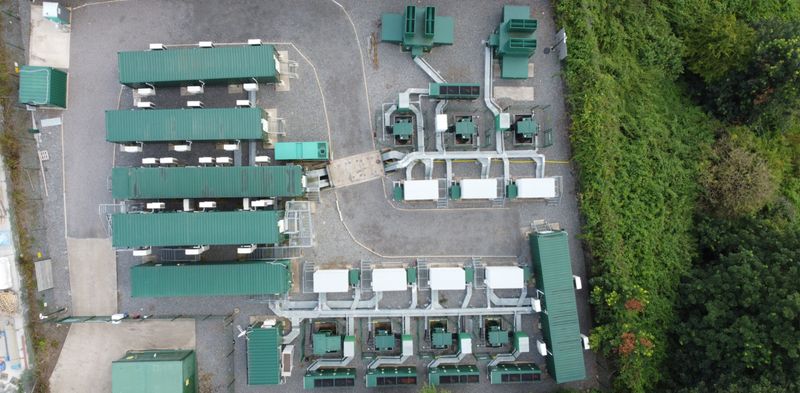
Gresham House, the largest owner of battery energy storage system (BESS) assets in the UK, has said it sees tolling deals like the one agreed with Octopus being possible “across the optimiser market”.
The investment manager, through its Gresham House Energy Storage Fund, has a near-term target portfolio of 1,072MW. About half of this is now part of a two-year tolling deal with Octopus, which will pay a fixed fee and take on operation and revenues for a total of 568MW.
Gresham House’s New Energy assistant fund manager, James Bustin, told Energy-Storage.news that the deal was based on a revenue trial on a single project, looking at whether supply and demand contracts could be balanced.
Bustin said: “The BESS is fundamentally about balancing supply and demand, and we were trying to demonstrate that on a small basis, so used a single portion of a site,” he said.
“BESS demonstrated a lot of value and we weren’t seeing that with the ESO (the UK’s electricity market operator) at the time. We saw an opportunity there and talked to multiple parties about it. Some were keen, some weren’t so keen, and we landed on Octopus. It’s very renewables-focused and that links well with BESS.”
Notably, because the Octopus agreement was built out from a smaller trial, Bustin said Gresham House sees it as something that is possible across the wider optimiser market.
“This woke up the wider market to the possibility of this being an option, it’s not only for large suppliers, though a large supplier has benefits like a balanced portfolio.”
Capacity Market more accessible to BESS projects
Under the tolling deal with GRID, Octopus will use the BESS projects’ batteries at a price determined by the duration of the assets, excluding Capacity Market (CM) payments the projects will receive separately.
National Grid ESO’s first update to de-rating factors methodology in six years was implemented in its Electricity Capacity Report this year. Its Scaled Equivalent Firm Capacity (EFC) changes stand to increase the value of battery storage in the immediate next of auctions, in February 2025.
The proposals do not appear to apply to existing Capacity Market Agreements.
The full conversation with James Bustin is available on our sister site, Energy-Storage.news, with a Premium subscription.

